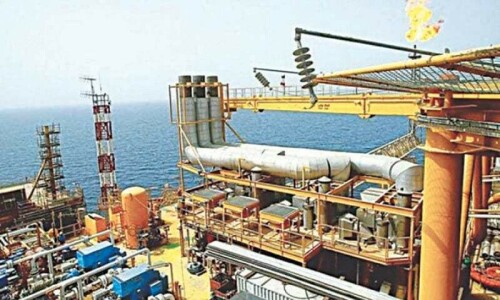JAKARTA: Indonesia has thrown in the towel on its plan to set a coal production cap starting in 2019, as domestic production has kept soaring from one year to the next amid the government’s need to boost non-tax state revenues (PNBP).
Through its 2015-2019 strategic plan, the Energy and Mineral Resources Ministry initially planned to gradually decrease the country’s annual coal production from 419 million tonnes in 2016 to 413m tonnes in 2017 and 406m tonnes in 2018.
Then, the ministry aimed to limit coal production to a maximum of 400m tonnes per year starting in 2019, so it could prioritise it for domestic use, especially considering the development of various coal-fired power plants in the country.
In fact, the realised domestic coal production stood at 456m tonnes in 2016 and 461m tonnes last year.
Bambang Gatot Ariyono, the Energy and Mineral Resources Ministry’s mineral and coal director general, said it was difficult to prevent all holders of coal mining permits (IUP), particularly ones that have conducted feasibility studies or have started the construction process at the mining sites, from entering the production stage.
“The production figure also determines a miner’s return on investment [ROI],” Bambang said on Thursday.
“Therefore, the government will only be able to restrain the production quota of each miner. For 2018, we can only tolerate a 5 per cent increase in domestic coal production to around 485m tonnes.”
Despite the increase in production, Bambang said the ministry would try its best to ensure sustainable mining activities in the country, though he acknowledged that thousands of miners had yet to make deposits into the reclamation-guarantee fund, which is supposed to be used for post-mining rehabilitation.
At present, only around 50pc of 6,565 mining permit holders in the country have made deposits to the administrations of regions in which they operated for post-mining reclamation.
On the other hand, the increase in coal production has played a role in boosting the government’s PNBP collection.
Throughout 2017, the PNBP from the mineral and coal sector reached Rp40.6 trillion ($2.84 billion), surpassing the full-year target of Rp32.7 trillion.
Of the total production last year, the government exported 364m tonnes of coal, down slightly from 365.5m tonnes in 2016.
Meanwhile, domestic coal consumption reached 97m tonnes last year, up from 90.5m tonnes in 2016 but still far below the original 2017 target of 121m tonnes.
Bambang said the government was unable to meet the 2017 consumption target due to delays in the completion of several coal-fired power plant projects, in addition to slowing industrial activities. Nonetheless, he was upbeat the country could increase the domestic consumption figure to 114m tonnes in 2018.—Courtesy: ANN
Published in Dawn, January 14th, 2018









































Dear visitor, the comments section is undergoing an overhaul and will return soon.